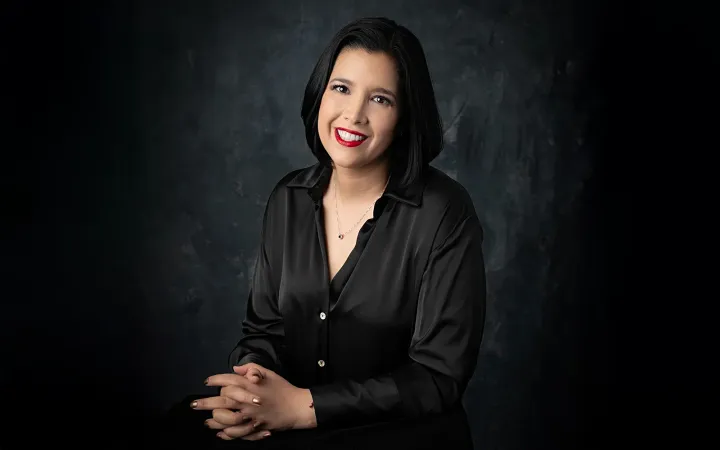Por Sofía Guadarrama Collado
La noche de este sábado, Donald Trump asistió en Washington DC al Hispanic Inaugural Ball, «Baile inaugural hispano», o Gala Oficial Hispana, en el cual se escuchó Bidi bidi bom bom, de Selena, Vivir mi vida, de Marc Anthony, entre otra decena de canciones latinoamericanas, así como la participación en vivo del Mariachi Vargas de Tecalitlán.
Al evento asistieron casi mil personas, entre las que destacaron Javier Garza Buffington, presidente de Grupo Legrand, quien forma parte del comité organizador (el cual también es patrocinado por Grupo Salinas); el secretario de Estado, Marco Rubio; el senador Ted Cruz, el senador Bernardo Moreno, Carlos Slim y su familia; Eduardo Verastegui, quien pretendió ser candidato independiente a la presidencia de México; Altagracia Gómez, titular del Consejo Asesor Empresarial y asesora en el gobierno de la presidenta Claudia Sheinbaum Pardo; Santiago Peña, presidente de Paraguay; Nayib Bukele, de El Salvador y Javier Milei, de Argentina, quien al inicio de la gala fue reconocido con el premio Titán de la Reforma Económica.
Durante la velada se habló y se elogió mucho sobre las deportaciones masivas, la construcción de la etapa inconclusa del muro en la frontera, los aranceles y la eliminación de los derechos de la comunidad transgénero.
Ahora bien, el Hispanic Inaugural Ball es sólo una de las galas que celebrarán el inicio del segundo mandato de Donald Trump, o como dicen en inglés: Inauguration Day.
En 2017, para el inicio de su primer periodo, Donald Trump asistió a tres galas: el Commander-in-Chief Ball, el Liberty Inaugural Ball y el Freedom Inaugural Ball. Pero no asistió al Latino Inaugural Ball, organizado por su Hispanic Advisory Council y otras organizaciones. Cuatro años fuera de la Casa Blanca fueron suficientes para comprender la importancia de esta gala.
Esta tradición comenzó con el país independiente en 1789 cuando George Washington llegó a la presidencia. Y la fiesta no es gratis. Por dar un ejemplo, en 1809, para la primera toma de posesión del presidente James Madison, las entradas costaban 4 dólares y se vendieron 400.
Sin embargo, el presidente Warren G. Harding canceló su gala en 1921 para mostrar austeridad. En 1977, Jimmy Carter también quiso suprimir el glamour y cobró menos de 25 dólares la entrada. Pero en Estados Unidos ese tipo de propaganda no funciona. El país del consumismo y la riqueza no puede vender austeridad, por ello se despilfarra en este tipo de galas. Las entradas para el Hispanic Inaugural Ball 2025 costaron entre 1,000 y 5,000 dólares.
En 1997, para la segunda toma de posesión de Bill Clinton, se llevaron a cabo catorce bailes inaugurales. En 2009, se celebraron 10 bailes inaugurales oficiales y 121 no oficiales, para la toma de posesión de Barack Obama.
Debido a la pandemia de COVID-19, para la investidura de Joe Biden no se celebraron bailes inaugurales en 2021.
Volviendo a la edición 2025 del Hispanic Inaugural Ball, este evento es la representación del grupo demográfico de más rápido crecimiento en el electorado estadounidense: 62 millones, que generan 3.7 billones americanos de dólares en el PIB anual. La velada busca forjar alianzas.
No se sabe con quién se reunió el presidente Donald Trump durante la velada. Sólo se le vio cuando salió en compañía de su esposa Melania al balcón, a las 9:43, tiempo del este, para observar los fuegos artificiales en su honor mientras a unos metros su cantante personal, Christopher Macchio, cantaba Aleluya y el Ave María. El cielo de Washington se iluminó para celebrar la segunda llegada de Donald Trump a la presidencia de los Estados Unidos. Quince minutos después, Donald y Melania regresaron al interior del hotel Omni Shoreham, mientras él agitaba los brazos al ritmo de YMCA de Village People.
Donald Trump es hijo de una inmigrante escocesa, nieto de inmigrantes alemanes y esposo de la yugoslava Melania Trump (nacida como Melanija Knavsnota). Lo anterior demuestra claramente que el 47º presidente de los Estados Unidos no odia a los inmigrantes. Simplemente no quiere a los inmigrantes pobres e ilegales, aunque sabe perfectamente que su país los necesita y Los Ángeles, California los necesitará aún más para reconstruirla después de los incendios de la semana pasada. Pero esencialmente prefiere a los hispanos elitistas, transfobicos, homofóbicos, conservadores, racistas y clasistas.
*Sofía Guadarrama Collado, autora prolífica y estudiosa de la historia de México desde hace 24 años. Su excepcional instinto narrativo, así como su conspicua percepción del mundo, la han situado como una de las escritoras mexicanas de mayor venta a nivel nacional.

Las opiniones expresadas son responsabilidad de sus autoras y son absolutamente independientes a la postura y línea editorial de Opinión 51.






Comments ()